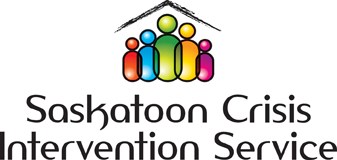Despite living in Saskatoon for most of his life, Eric Thiessen never knew the city had a mobile crisis centre. When he researched the group and looked into the work they do, he knew he had to tell their story.
“[It’s] pretty astonishing,” he said. “[I wanted to] shine a light on it.”
Thiessen, a film director, has made several documentaries. He worked with the National Film Board (NFB) to create “Talking at Night,” a short documentary on the Saskatoon Mobile Crisis Centre.
“[It’s a] short little portrait,” he said. “[A] one-night look at what happens at the Saskatoon Mobile Crisis Centre.”
Thiessen shot the seven-minute film last fall. He’s taking his finished product to the Yorkton Film Festival (YFF) this month, where he’ll be competing for the Ruth Shaw Award (Best of Saskatchewan).
“It’s a great feeling,” he said. “Nice to get recognition.”
Thiessen reached out to the crisis centre nearly a year ago to get the ball rolling on his documentary. Rita Field, Executive Director of Saskatoon Crisis Intervention Service, was surprised to hear from him.
“It caught us off guard,” she said. “We’re not used to telling our story.”
Field and Thiessen discussed the logistics of the filming process, with Field ultimately signing off on the project.
“He seemed to be a talented young man,” she said. “NFB’s [involvement] gave the situation credibility.”
Thiessen’s film plunges the viewer into a night with the crisis centre as its workers answer calls from those in distress. Due to the sensitive nature of the work, the callers’ names and voices are never heard.
The documentary features no narration, “taling head” interviews, or title cards; Thiessen calls it an “observational documentary.” He chose this approach to put the audience in the thick of the crisis centre’s world. It was uncharted territory for the filmmaker.
“I’d never done an observational doc before,” he said. “Brand new style for me.”
Once Thiessen captured the raw footage, he struggled with the editing process.
“[Hardest part was] determining which calls to feature in the final edit,” he said.
Thiessen screened the finished movie for the crisis centre workers. Field was stunned.
“It brought tears to my eyes,” she said. “I was so proud of my staff.
“It’s so profound.”
Field plans to use the movie as a promotional tool for the centre’s service.
“It’s short, but it has this incredible impact,” she said.
Thiessen thinks his YFF nomination will bring more eyes to his documentary.
“I hope the nomination gives the film a boost,” he said.
Thiessen will be attending the festival. He’s looking forward to connecting with industry people.
“It’s an unpretentious festival,” he said. “You really get to know people.
“Everyone is so warm and welcoming.”




